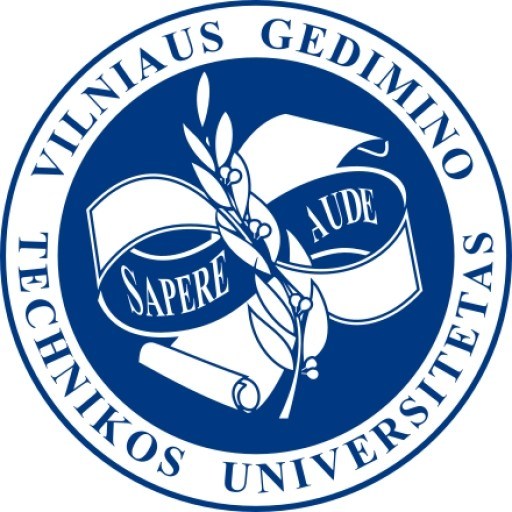Photos of university / #utrechtuniversity
Energy Science at Utrecht University offers a comprehensive and interdisciplinary approach to understanding the complex systems involved in the production, transformation, and consumption of energy. This Bachelor’s programme is designed to equip students with a solid foundation in physics, chemistry, mathematics, and engineering principles, combined with insights into sustainable energy solutions and environmental considerations. Throughout the programme, students explore various energy sources, including renewable options such as solar, wind, and bioenergy, as well as traditional fossil fuels, and learn about the technological, economic, and societal factors influencing energy policies and transitions. The curriculum emphasizes problem-solving skills, experimental techniques, and data analysis to prepare students for tackling real-world energy challenges. Students have opportunities for hands-on experience through laboratories, projects, and internships, fostering practical skills and industry readiness. The programme also encourages critical thinking about the societal impacts of energy use, including climate change mitigation and sustainable development. Interdisciplinary collaboration is a key aspect, with courses integrating knowledge from natural sciences, engineering, and social sciences to develop holistic solutions for a sustainable energy future. Graduates of the Energy Science programme are well-prepared for careers in energy consulting, research and development, policy advising, and industry roles focused on innovative energy technologies and sustainable practices. The programme’s close ties with research institutes and industry partners ensure that students stay abreast of the latest advancements and industry needs. With a strong emphasis on sustainability and innovation, Utrecht University’s Energy Science programme aims to develop future leaders who can contribute to a more sustainable and efficient energy system worldwide, addressing one of the most critical challenges of our time.
Energy Science at Utrecht University offers an interdisciplinary and comprehensive programme designed to equip students with a thorough understanding of the fundamental principles and latest developments in the field of energy. The programme emphasizes sustainable energy solutions, innovative technologies, and the complex economic and societal aspects linked to energy production and consumption. Throughout the course, students explore various energy sources, including renewable options like solar, wind, bioenergy, and geothermal, as well as traditional fossil fuels. The curriculum combines theoretical knowledge with practical applications, fostering critical thinking and problem-solving skills necessary for addressing global energy challenges.
Students engage with core topics such as thermodynamics, fluid mechanics, and material science, which underpin the development of efficient energy systems. They also delve into advanced subjects like energy storage, smart grids, and energy efficiency, preparing them to contribute to the transition towards sustainable energy futures. The programme incorporates laboratory work, project-based learning, and internships, providing hands-on experience and exposure to real-world industry practices.
Interdisciplinary modules encourage collaboration between students from different backgrounds, promoting diverse perspectives on energy issues. The programme also emphasizes the importance of policy, economics, and societal impacts, ensuring graduates are well-versed in the broader context of energy technology implementation. Utrecht University’s strong ties with industry partners and research institutions enable students to participate in cutting-edge research projects and innovation initiatives.
Graduates from the Energy Science programme are prepared for careers in energy consultancy, research and development, engineering, policy advising, and management within the energy sector. They are equipped to develop sustainable energy solutions, contribute to technological advancements, and influence policy frameworks to meet the world's growing energy needs responsibly and sustainably. Overall, Utrecht University’s Energy Science programme offers an in-depth, multidisciplinary education for those passionate about shaping the future of energy.
The Bachelor's programme in Energy Science at Utrecht University requires prospective students to possess a strong foundation in science and mathematics, including proficiency in physics, chemistry, and mathematics at the secondary education level. Applicants should have completed a relevant secondary school diploma that demonstrates their capability to undertake university-level scientific coursework. Prior knowledge or experience in energy systems, environmental science, or engineering is not mandatory but can be advantageous. The programme emphasizes interdisciplinary understanding, so students should be prepared to engage with subjects spanning physics, chemistry, environmental science, and technology. While specific prerequisite courses are not explicitly mandated, applicants should have an interest in sustainable energy solutions and be motivated to tackle global energy challenges.
Language proficiency is crucial, as the programme is taught in English; therefore, applicants whose first language is not English must demonstrate sufficient proficiency through standardized tests such as IELTS or TOEFL, meeting the minimum required scores set by Utrecht University. The application process involves submitting academic transcripts, proof of English language proficiency, and a motivation letter explaining the applicant's interest in energy science and their career aspirations. Additionally, some experience in laboratory work or project-based activities in science can strengthen the application but is not strictly required.
The programme's curriculum includes foundational courses in physics, chemistry, and mathematics, progressing to specialized classes in renewable energy, energy storage, energy policy, and sustainable technologies. Students are expected to complete practical assignments, laboratory work, and group projects that develop analytical and problem-solving skills essential for a career in energy science. An internship or research project often forms a part of the curriculum, providing real-world experience. Moreover, Utrecht University encourages applicants to possess strong analytical skills, creativity, and the ability to work collaboratively in multidisciplinary teams.
In summary, programme requirements focus on academic readiness in science and mathematics, English language proficiency, motivation for a career in energy technology, and a demonstrated interest in sustainability issues. The university seeks applicants who are curious, innovative, and committed to advancing energy solutions for a sustainable future. These criteria aim to ensure students are well-prepared to succeed academically and professionally in the dynamic field of energy science.
The financing of the Energy Science program at Utrecht University is primarily structured through a combination of government funding, tuition fees, and additional financial support options. As an accredited Dutch university, Utrecht University benefits from the Dutch government's higher education funding policies, which contribute significantly to the overall budget for the program. Tuition fees for non-EU international students are set annually and are published on the university's official website, ensuring transparency and consistency in the cost structure. EU students typically pay a standardized fee that is lower than that for non-EU students, reflecting the subsidized nature of education within the European Union.
Students enrolled in the Energy Science program are encouraged to explore various funding options to support their education. Dutch and EU students may access government-funded student grants and loan schemes, such as the Dutch Student Finance system, which offers loans and bursaries to assist with living expenses and tuition costs. International students from outside the EU are often advised to seek scholarships or sponsorships, which are sometimes provided by the Dutch government, private foundations, or international organizations. Utrecht University actively offers scholarships specifically targeted at international students, including partial tuition fee waivers and full scholarships based on academic excellence or financial need.
In addition to government and scholarship funding, students may consider external funding sources, such as Erasmus+ programs, which facilitate mobility and exchange opportunities within Europe and often include financial awards. The university's Career Services and international office assist students in identifying suitable funding opportunities and completing application procedures. Moreover, some students finance their studies through part-time work opportunities available on or around the Utrecht University campus, adhering to work restrictions applicable to international students.
Funding for research projects and internships incorporated within the Energy Science curriculum may be supported through university research grants, European Union research funding programs, or industry collaborations. These sources not only contribute to the financial resources for the program but also provide students with valuable practical experience and networking opportunities that can enhance their employability after graduation. Overall, the financing structure of the Energy Science program aims to make education accessible while encouraging diverse financial support mechanisms, ensuring that capable students can pursue their studies regardless of their financial background.
Energy Science at Utrecht University is a comprehensive interdisciplinary program designed to prepare students for the global challenges related to energy production, consumption, and sustainability. The program combines knowledge from various fields including physics, chemistry, engineering, and environmental sciences to provide a well-rounded understanding of energy systems. Students are introduced to the fundamental principles of energy generation, storage, and efficiency, as well as the social and economic aspects of energy use. The curriculum includes coursework in thermodynamics, material science, renewable energy technologies, and policy analyses. Practical experience is emphasized through laboratories, project work, and internships, enabling students to apply theoretical knowledge to real-world problems. The program aims to foster innovative thinking and technical skills necessary for developing sustainable solutions in the energy sector. Utrecht University's Energy Science program is characterized by its research-driven approach, with close ties to industry and research institutes, offering students opportunities for collaboration and networking. Graduates are equipped to pursue careers in energy consultancy, engineering, research, policy-making, and management roles within the rapidly evolving energy industry. The program is suitable for students passionate about making a positive impact on the environment and society through technological innovation and strategic planning. It prepares students to work on innovative projects such as renewable energy systems, smart grids, and energy-efficient technologies, contributing to the transition towards a sustainable energy future. The university’s facilities support cutting-edge research and practical training, and students benefit from Utrecht’s vibrant academic environment. The program emphasizes critical thinking, problem-solving, and teamwork, preparing students to address complex energy challenges with a multidisciplinary perspective. Overall, the Utrecht University Energy Science program offers a unique combination of theoretical knowledge, practical skills, and research opportunities, aligning academic learning with industry needs to produce well-qualified professionals ready to lead in the field of sustainable energy.









